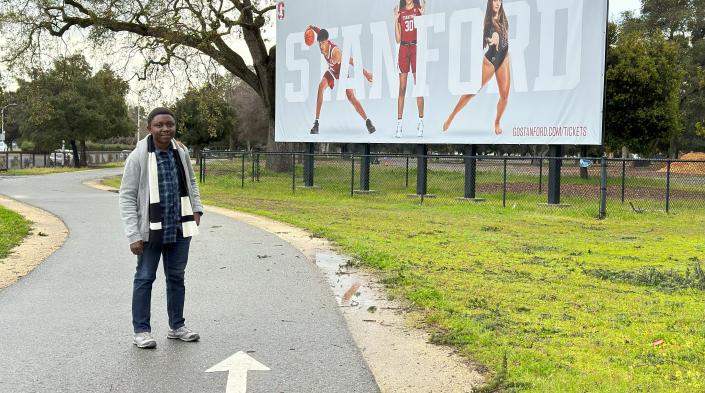
Published on
Page last updated on
From 7 to 10 March 2023, I had the privilege of attending the Tech Camp hosted at Stanford University (California), a collaboration between Stanford’s Global Digital Policy Incubator and the International Center for Not-for-Profit Law. The aim of the Tech Camp was to bring together around 30 experts on civic space from non-profit organisations from around the world to learn about emerging technologies and how these technologies and the policies that govern their use have and will affect civic space, with the goal to prepare participants to more effectively advocate for and defend civic space in the digital age.
During four intense and fully packed days, we participants were able to learn from experts and guest speakers from various entities and digital platforms. We were also able to share experiences and network with all the other civic space leaders present in the room, bringing a wealth of hands-on experience on how they navigate the various threats in their own contexts.
I would like to share a few take-aways or learning points:
-
It is always very important for civic space leaders from across the world to get to meet in order to learn, network and share experiences on how to tackle the current and emerging issues in the tech space and how these are affecting their work as digital rights defenders.
-
Bringing together participants coming all the way from Kyrgyzstan, India, Indonesia and those from Kenya, Nigeria, Zambia and the Democratic Republic of Congo (DRC) as well as those from Argentina and Peru was in itself an achievement, as this results in a wealth of knowledge and perspectives that helped enrich the Tech Camp.
-
It was interesting to understand that across many of those countries, states are designing and using laws to repress any dissenting voices and are going even further by collaborating with some entities in the tech industry, using their tools and platforms to conduct surveillance practices, therefore endangering the lives of their citizens but, most importantly, of those who are vocal about these violations.
-
Having high-level guest speakers engage directly with participants on some of their studies, published reports on issues such as repressive practices which include digital surveillance, censorship or information manipulation, including how different laws are being used for those objectives, was a highlight; also, having participants share their experience navigating and living these practices was so refreshing. As an actor from a country that has experienced the same practices from the state in the past, these conversations encouraged me to stay strong and provided additional practical tips on how to advocate against and deal with these practices in my own context.
-
In many instances, civic leaders don’t understand how the internet actually works, so a conversation on the technical layers of the internet, its standards and protocols and how these facilitate global interoperability was very insightful. When civic leaders are addressing or advocating around issues such as internet shutdowns and censorship, it makes a strong impact when they have an understanding of how this is technically done or implemented. I also learned that it is very important for civil society to engage with and influence tech standard-setting bodies, bringing human rights perspectives forward in their conversations, and for that, they need a minimum of understanding of the issues.
-
Then came the time for civic leaders to learn about how technologies such as artificial intelligence (AI) and blockchain can impact human rights or civic space. We gained an understanding of different models of or approaches to AI governance, and discussed terminologies such as “trustworthy”, “responsible” or even “ethical” AI. During these sessions, we also had the opportunity to discuss national and international AI frameworks and the idea of whether the European Union’s AI Act and AI Liability Directive could become a global model like its General Data Protection Regulation (GDPR).
All in all, the Tech Camp was a beautiful opportunity to network and build support as well as renew our energy, because at some point during our advocacy work, nationally or internationally, we feel discouraged or out of energy, but knowing that we have allies in different countries can be life changing. It was also important to connect with various experts in this area, people we can rely on during our research work or even connect with when building advocacy work at the international level.
I would like to thank the Association for Progressive Communications (APC) for having provided the additional funding needed to ensure my participation in this prestigious Tech Camp through the Member Engagement and Travel Fund. As the executive director of Rudi International, and at the same time responsible for our global advocacy work, this exposure was very important and it will help strengthen our work as we fight for a freer and more open internet ecosystem in the DRC.
Photo courtesy of Arsène Tungali.


